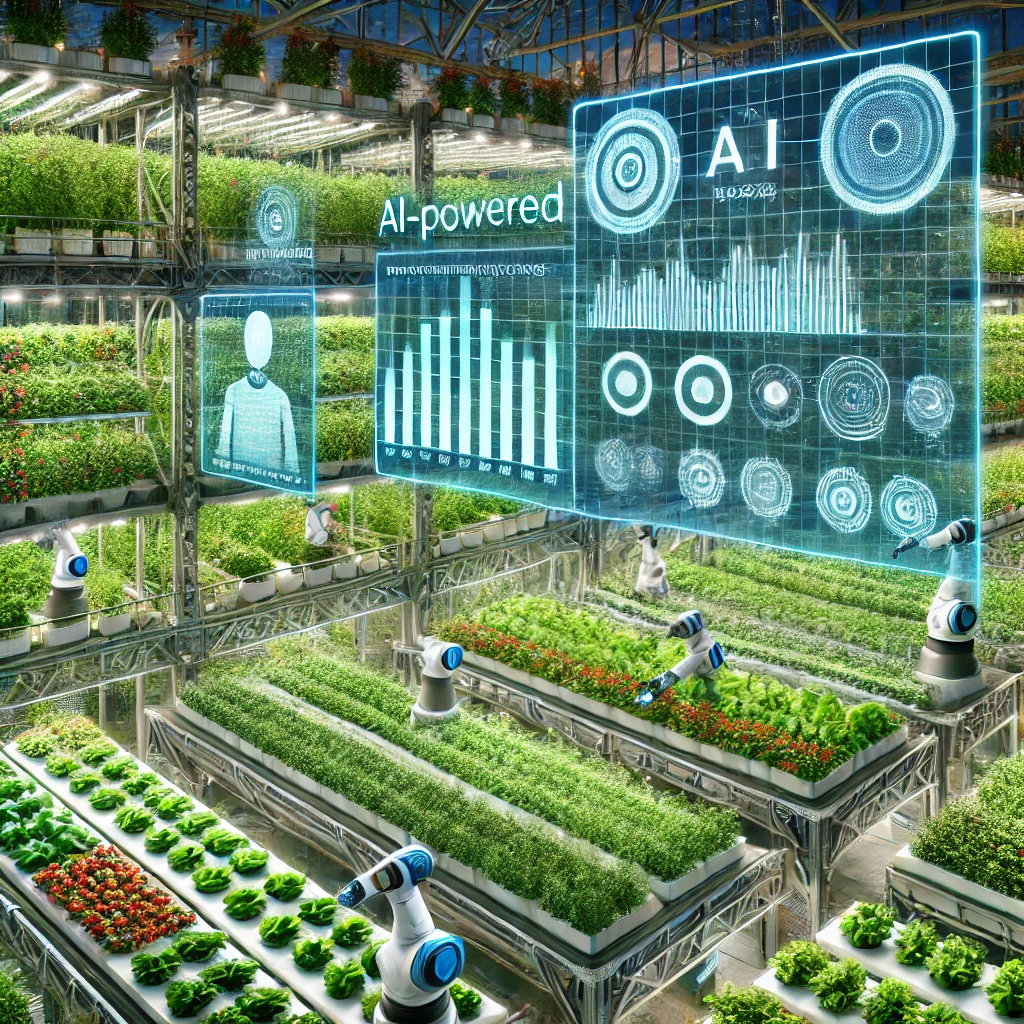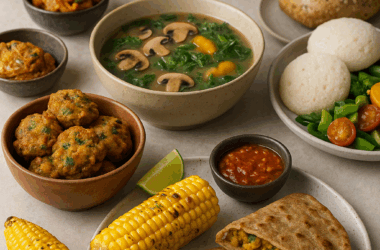The 21st century has witnessed a massive food evolution, transformation in food production, consumption, and innovation. In 2025, global food trends are shaped by sustainability, technology, and evolving consumer preferences. With climate change affecting agriculture, scientists are developing lab-grown meats, vertical farming, and AI-driven food optimization. People now focus on plant-based diets, alternative proteins, and personalized nutrition tailored to their genetic makeup.
Food security remains a major challenge, leading to increased investment in precision agriculture and genetically modified crops. The digital era has also revolutionized how we experience food, with online meal subscriptions and AI-driven recipes gaining popularity. In some parts of the world, traditional cooking methods are making a comeback, emphasizing organic and locally sourced ingredients. From home kitchens to global food supply chains, the evolution of food in 2025 is driven by a balance between sustainability, health, and convenience.
Domestic Food Evolution: Smart Kitchens and Sustainable Choices.
The way people cook and eat at home has changed significantly in the 21st century. Smart kitchens, featuring AI-powered cooking assistants, have become common. These systems suggest recipes, adjust ingredients, and optimize nutritional intake. Voice-controlled appliances and automated grocery deliveries simplify meal planning, reducing food waste.
Sustainability is a key focus, with families shifting towards plant-based meals and locally sourced produce. Urban farming and hydroponic gardening are growing trends, allowing people to cultivate fresh vegetables at home. Waste management has improved, with composting and biodegradable packaging becoming household norms.
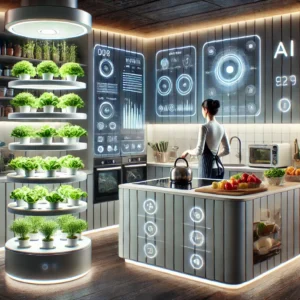
Ready-to-eat meals have also evolved, emphasizing natural ingredients and minimal preservatives. Many people now choose personalized meal kits based on DNA-driven nutrition analysis. The blending of technology with tradition ensures that domestic food habits continue evolving toward health and efficiency.
International Food Evolution: The Rise of Alternative Proteins
Internationally, food innovation has focused on sustainable protein sources. Lab-grown meat, insect-based protein, and plant-based alternatives are replacing traditional meat products. Countries like the Netherlands, Singapore, and the US are leading in cellular agriculture, making cultured meat a mainstream option.
Major fast-food chains have adopted plant-based menus, catering to the growing demand for ethical and sustainable food. The shift towards alternative proteins is reducing the environmental impact of animal farming. Insect farming, once considered niche, is now a major industry, supplying high-protein products worldwide.
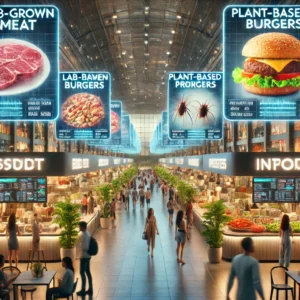
International food trade has also adapted, with countries relying more on climate-resilient crops. AI-driven logistics ensure food reaches remote regions efficiently. This shift is making food systems more sustainable while addressing global hunger challenges.
Global Food Evolution: AI, Automation, and Climate-Resilient Crops.
On a global scale, artificial intelligence and automation are reshaping food production. AI-driven farming, robotic harvesting, and blockchain-based food tracking enhance efficiency and transparency. These advancements help reduce food fraud and improve safety in the global supply chain.
Climate change has forced scientists to develop drought-resistant and genetically modified crops. Vertical farming in urban areas is reducing dependence on traditional agriculture. Countries are investing in large-scale hydroponic and aeroponic farms to ensure year-round food production.
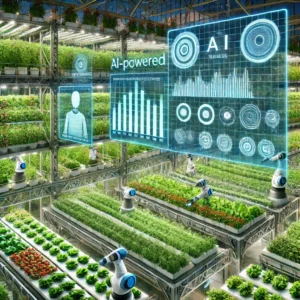
Food delivery has also evolved, with drone deliveries and AI-powered meal recommendations becoming standard. The global push for sustainability is evident in zero-waste packaging and carbon-neutral supply chains. Food evolution in 2025 is driven by technology, ensuring a balance between efficiency, sustainability, and accessibility.
Conclusion
Food evolution in the 21st century is a dynamic blend of technology, sustainability, and changing consumer habits. In 2025, domestic food trends focus on smart kitchens and homegrown produce, while international markets embrace alternative proteins. Globally, AI and automation drive food production, ensuring efficiency and sustainability. As we move forward, food innovation will continue transforming how we produce, consume, and experience food.
Utpal Khot
Copyright © Utpal K
1. If you share this post, please give due credit to the author Utpal Khot
2. Please DO NOT PLAGIARIZE. Please DO NOT Cut/Copy/Paste this post
© Utpal K., all rights reserved.
Copyright Notice: No part of this Blog may be reproduced or utilized in any form or by any means, electronic or mechanical including photocopying or by any information storage and retrieval system, without permission in writing from the Blog Author Utpal Khot who holds the copyright.
